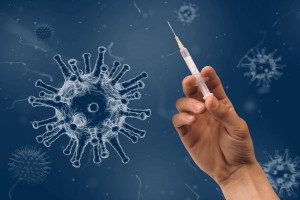
Emergency Committee on COVID-19 advises on variants, vaccines
Geneva: The World Health Organisation Emergency Committee on COVID-19 has strongly encouraged vaccine manufacturers to rapidly provide safety and efficacy data to WHO for emergency use listing. “The lack of such data is a barrier to ensuring the timely and equitable supply of vaccines at the global level,” it said and recommended that given that the impact of vaccines in reducing transmission is yet unknown, and the current availability of vaccines is too limited, countries do not require proof of vaccination from incoming travellers.
With almost two million deaths, and new variants appearing in multiple countries, the emergency committee emphasised the need for governments to do all they can to curb infections through tried and tested public health measures. The committee advised countries to implement coordinated, evidence-based measures for safe travel and to share with WHO experiences and best practices learned.
More than 30 million vaccine doses have already been administered in 47 mostly high-income countries. But the global vaccine rollout has exposed glaring inequalities in access to this life-saving tool. Only one of the 47 countries that have started vaccination to date is a low-income country.
The Emergency Committee (EC) recognised the challenges posed by some manufacturers’ delayed submission of vaccine data to WHO. “These data delays impact WHO’s ability to provide emergency use listing which ultimately affect equitable vaccine access. The Committee strongly encourages manufacturers to provide data to WHO as rapidly as possible,” it stated.
The EC unanimously agreed that the COVID-19 pandemic still constitutes an extraordinary event, a public health risk to other States through international spread, and continues to require a coordinated international response. As such, the Committee concurred that the COVID-19 pandemic remains a public health emergency of international concern (PHEIC) and offered advice to the Director-General.
The WHO Director of the Immunization, Vaccines and Biologicals Department presented the current status of the COVID-19 vaccine landscape and introduction.
During the meeting, a representative of the United Kingdom of Great Britain and Northern Ireland presented on the new SARS-CoV-2 variant which is causing increased transmission but not severity of COVID-19. A representative of Denmark presented on the SARS-CoV-2 mink variants and their response which has resulted in these variants no longer circulating in human populations. The WHO Technical Lead for COVID-19 Response and an Emergency Committee Member from South Africa provided an overview of the variant detected by South Africa. The WHO Technical Lead then shared a global overview of SARS-CoV-2 mutations and variants as well as plans to develop and implement standard nomenclature for variants that does not reference a geographical location.
On variants, the EC called for a global expansion of genomic sequencing and sharing of data, along with greater scientific collaboration to address critical unknowns.
The committee urged WHO to develop a standardised system for naming new variants that avoids geographical markers, an area WHO has already begun work on.
This was the sixth meeting of the Emergency Committee on COVID-19 that met virtually on January 14, 2021 at the request of WHO Director-General Dr Tedros Adhanom Ghebreyesus to review the emerging variants of SARS-CoV-2, the virus that causes COVID-19, and to consider the potential use of vaccination and testing certificates for international travel.
Since the declaration of a Public Health Emergency of International Concern (PHEIC) on January 30, 2020, the Director-General has been reconvening the committee at three-month intervals to review progress.
“I was pleased that the emergency committee put a major emphasis on rolling out COVID-19 vaccines equitably. I want to see vaccination underway in every country in the next 100 days so that health workers and those at high-risk are protected first,” WHO Director-General Dr. Tedros Adhanom Ghebreyesus said in his press conference last night.
In a related development, more than 2,800 scientists from 130 countries gathered on Friday (January 15) in a virtual forum hosted by WHO to identify knowledge gaps and set research priorities for vaccines against SARS-CoV-2, the virus that causes COVID-19.
They discussed the safety and efficacy of existing vaccines and new candidates, ways to optimise limited supply, and the need for additional safety studies. These experts agreed the need for critical research on administering vaccines in different target populations, as well as on vaccination delivery strategies and schedules. This includes trials, modelling and observational studies, all of which would help to inform policy.
“The world needs multiple vaccines that work in different populations in order to meet global demand and end the COVID-19 outbreak. Ideally, those will be single-dose vaccines that do not require cold chain, could be delivered without a needle and syringe and are amenable to large-scale manufacture,” said Professor Mike Levine, Director of the Center for Vaccine Development at the University of Maryland.
The meeting concluded with agreement to establish a WHO-hosted platform for global sharing and coordination of emerging vaccine research information on efficacy and safety. The forum would enable scientists to share and discuss unpublished and published data and research protocols to further our collective understanding of SARS-CoV-2 vaccines.
– global bihari bureau





